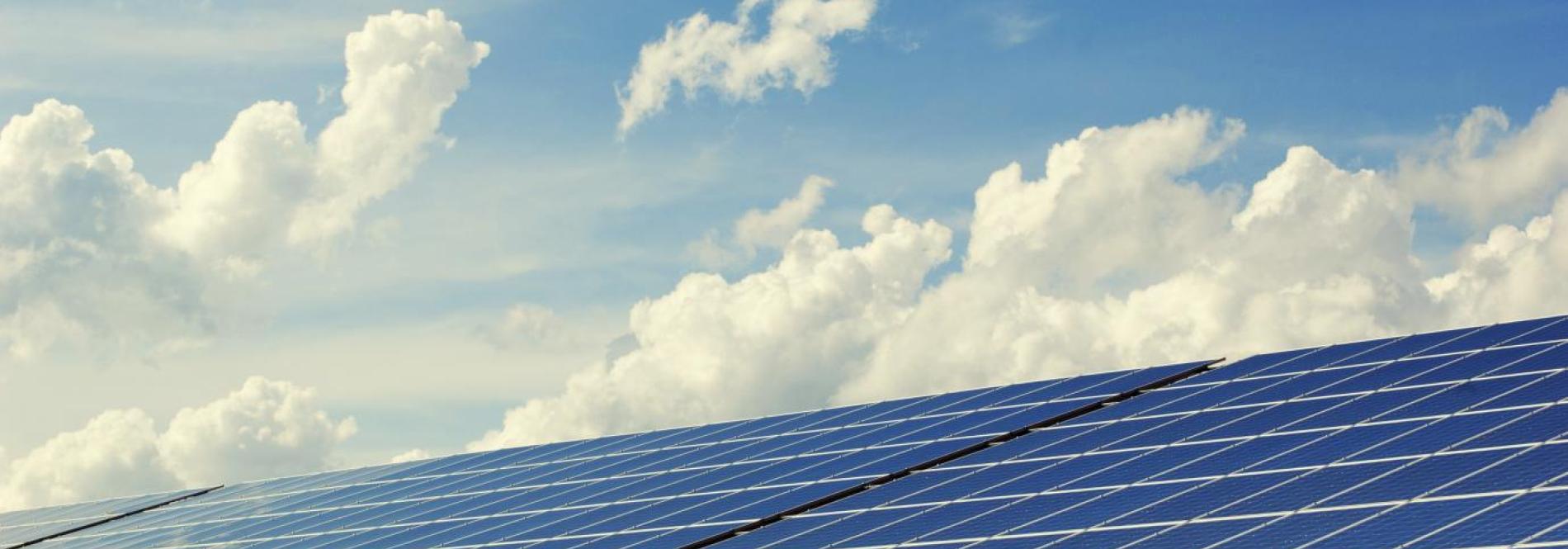
Recently, we have heard that individuals who claim to work with LPEA have been knocking on members' doors in an attempt to gain account information.
In the past we’ve received reports from members that solar companies are knocking on their doors, claiming to be working with LPEA, and using false or misleading information to persuade them to pursue solar on their homes. Dubious solar claims are also widely circulating in online ads, cold call campaigns, and direct emails.
Stay vigilant and do your homework! If something sounds too good to be true, it probably is. The BEST way to pursue solar in our area is to follow the below steps and use one of LPEA's Qualified Solar Installers.
Take these three steps before you consider a solar installation on your home or business. If you do not complete the following, LPEA cannot guarantee we will be able to connect your system to the grid:
-
Call LPEA. Each installation is different, and there are often obstacles to overcome before you can install a system that connects to LPEA’s grid. Our experts can walk you through the options.
-
Check LPEA's list of Qualified Solar Installers. Accountability matters! Local installers are familiar with LPEA’s standards and are more likely to fix issues quickly. When there is a problem, you’re more likely to get quick service from the same people who installed your system.
-
Get at least three quotes from different installers before selecting one.
Finally, make sure you do your homework and know fact from fiction. The following claims are the most common we hear in our area:
Claim #1: The bigger the system, the better
LPEA strongly encourages you to properly size your solar PV systems to ensure the best return on your investment and to have the best impact on the cooperative’s grid. “Right-sizing” means sizing your PV system to provide roughly 100% of your annual usage.
Through net metering, LPEA will credit you at full retail credit for every kilowatt-hour (kWh) your solar system produces that you consume in a year. For any excess generation, LPEA will pay you a wholesale rate.
That means the compensation you receive for excess generation is less than one-third the value you would receive for energy consumed with a right-sized system. As such, it doesn't make financial sense to oversize your system as you won't "make money" on it. Make sure to ask your solar installer if they are factoring in these rate differences when they calculate the payback period you should expect.
Claim #2: Colorado offers incentives for solar installations.
There are currently no state-wide incentives for solar. See energyoffice.colorado.gov/climate-energy/renewable-energy/solar for the latest information. There is, however, a 26% Federal Tax Credit for individuals that qualify. Speak with your tax accountant for more details.
Claim #3: LPEA offers incentives for solar installations because we can buy the power back from you cheaper than we could produce it ourselves.
LPEA could self-generate solar energy for a fraction of the cost of a new net metered installation, but we have restrictions based on our current contract with our power provider, Tri-State, that limit the amount we can self-generate. LPEA credits a net metered member on the General Service Rate, 12.5 cents per kWh. When LPEA installs large-scale solar, we will do so at approximately 3 cents per kWh.
LPEA currently credits net metered installations at such a high rate partly because it is required by Colorado law and partly because we want to encourage rooftop solar installations since we have no other options currently to develop solar in our service area. That said, LPEA will soon have the ability to develop our own lower-cost, solar, and other carbon-free resources. At that time, the credit for net metering could be reduced.
Claim #4: Solar installation will eliminate your power bill.
Solar can reduce or eliminate the energy charge on a bill through net metering (if sized correctly), but there will still be a base charge, peak power charges, and taxes and fees levied by LPEA. Also, it's important to remember that the sun is not guaranteed. If your usage changes or your generation changes due to cloudy weather, your bill from LPEA may increase.
Claim #5: LPEA’s rates will continue to increase by an average of 6% annually.
This is false. LPEA’s 2020 rate increase was the first such increase in four years, and there has been no rate increase since. LPEA's efforts to diversify our power supply in the future are expected to stabilize rates into the future.
Claim #6: Free solar!
If it sounds too good to be true, it probably is. When a company promises free solar installations, be cautious and ask a lot of questions. It usually means no money down, and you pay either a loan or a lease payment. In these instances, you usually pay more over the lifetime of the system than if you just purchase it outright upfront. It can also mean sometimes that you don't actually own your system.
When in doubt, remember to call us before you invest. For more information on LPEA’s Net Metering Program, visit https://lpea.coop/member-solar
